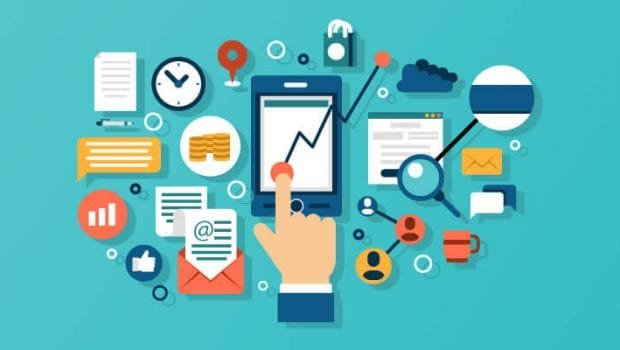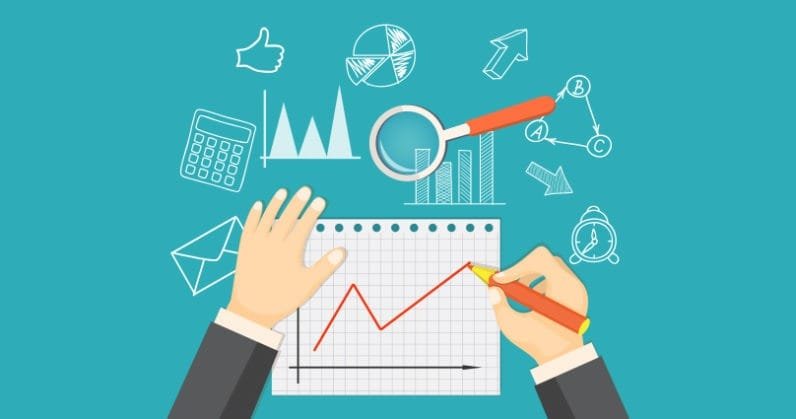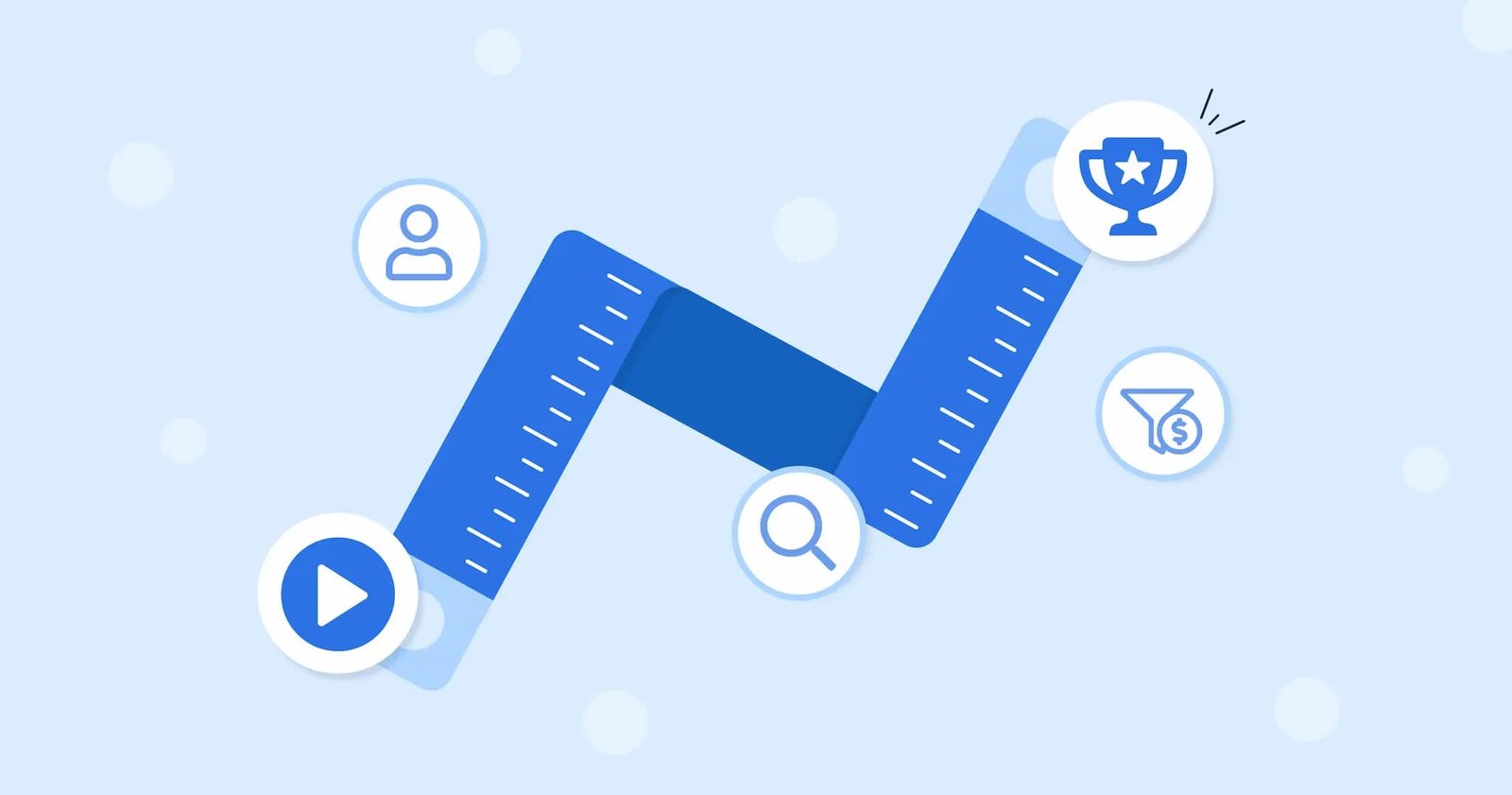In today’s digital world, reaching your target audience is very important for a good marketing campaign. Digital marketing offers great tools to connect with potential customers. However, to get the best return on your investment, you need a smart plan. This means you should understand your audience, improve your channels, and use data to make better choices.
Essential Strategies to Enhance Your Marketing Campaign Performance
To get the most out of your marketing campaign, you need to understand your target audience well. Use data to guide your decisions. Keep improving your strategies along the way.
When you apply tested tactics, you can make your marketing efforts connect with the right people. This will help you get better results. These tactics are key to boosting engagement, gaining conversions, and helping your business grow.
1. Identify and Understand Your Target Audience

Knowing your target audience well is very important. You need to find out what they need, how they act, and what they prefer on different digital platforms.
Good audience segmentation helps you adjust your messages and choose the right channels for better results. By looking at customer data and tracking the customer journey, you can build focused campaigns that speak to different audience groups. This improves engagement, boosts conversion rates, and helps you build better relationships with customers.
Keep in mind, a one-size-fits-all strategy doesn’t work anymore in today’s mixed digital world.
2. Utilize Data Analytics for Decision Making
Data analysis is very important for making smart choices in digital marketing. Tools like Google Analytics and other marketing analytics platforms give you a lot of details about how users behave, how campaigns are doing, and how well different channels work.
By looking at important metrics and trends, you can find ways to improve and take advantage of new chances. For example, knowing which channels bring the most conversions helps you spend your ad money wisely and manage your budget better.
When you make decisions based on data, your marketing efforts match what real audiences do. This makes your campaigns stronger and helps you get a better return on investment.
3. Optimize Your Marketing Channels
Not all marketing channels work the same. Your target audience might be more active on specific social platforms or may prefer email marketing instead of display ads.
To optimize your marketing channels, you need to find out where your audience spends their time. Then, you can adjust your campaigns to match. This means looking at user experience, how people engage, and conversion rates for each channel. By focusing on the best platforms, you can reach more people and waste fewer resources.
A well-optimized multi-channel strategy helps you keep your messages consistent. This creates a smooth brand experience throughout the customer journey.
4. Leverage Automation Tools
In today’s fast-paced world, being efficient is very important. Marketing automation tools can save you time and effort. They help by making repetitive tasks easier. These tools can handle many marketing efforts, like email marketing, social media posting, and managing ad campaigns.
By using these tools, you can spend more time on planning and creating content. This leads to better and more effective campaigns. Plus, automation helps you adjust your campaigns in real time using performance data. This means you can change things quickly and get the most out of your investment.
When you automate tasks, you can free up time for more important activities that need a human touch.
5. Implement A/B Testing Regularly
Continuous optimization with A/B testing is very important for getting the best results from your campaigns. You can test things like ad copy, email subject lines, landing page designs, or call-to-action buttons. This method uses data to find which choices work best.
By looking at the results from different tests, you can learn what pleases your target audience and leads to a better conversion rate. A/B testing removes the guesswork and helps you improve your campaigns using clear facts. Here are some key areas where A/B testing can greatly help:
- Headlines: Test different headlines to see which one gets the most clicks.
- Images: Try out different images to find which ones engage people the most.
- Call-to-action buttons: Enhance your CTA buttons to get more clicks.
6. Engage with Influencers and Brand Ambassadors
In today’s world of social media, brands use influencer marketing to connect with new audiences and gain trust. Working with influencers and brand ambassadors who share your brand’s values can increase your reach and improve brand awareness.
These partnerships open doors to existing groups and build trust through real recommendations. Choosing influencers whose followers match your target market helps make sure you reach the right people.
Real endorsements from trusted sources can be much more effective than traditional ads. They can boost engagement and encourage brand loyalty.
Advanced Techniques in Digital Marketing
Digital marketing is always changing. To keep up, you need to accept new technologies and methods. Using advanced techniques like AI-driven personalization and real-time engagement can make your campaigns even better.
By using these modern tools and strategies, you can connect more with your audience, make customer experiences better, and get great results in today’s tough market.

1. Personalization at Scale
In today’s world, there is too much information. Customers want experiences that are made just for them. New marketing tools can help make this happen. They use customer data to change marketing strategies.
This could mean organizing email lists by what customers bought before or how they acted on the website. It could also mean showing content that is designed for each person’s liking. By giving helpful and interesting content along the customer journey, personalization builds better connections. It can raise conversion rates and keep customers coming back longer.
Instead of sending the same message to everyone, change your content. Make it connect with what each person needs. This way, you can build real relationships with your audience.
2. Integration of AI and Machine Learning
Artificial intelligence (AI) and machine learning are changing marketing. They help marketers make smarter decisions. With tools like predictive analytics, automated ad campaign optimization, chatbot interactions, and support for content creation, AI opens up many chances to work better and do things more effectively.
Using AI tools in your marketing plan can help you target people more accurately. It improves how you segment customers and enhances personalization. All these factors lead to a stronger marketing return on investment (ROI). AI can process large amounts of data faster and better than people. It can find hidden patterns and insights that lead to better results.
When you take advantage of AI, you can automate tasks, give personalized experiences, and optimize your ad campaigns for maximum impact.
3. Real-Time Customer Engagement Strategies
Today’s consumers want quick responses and interaction right away. Digital marketing helps brands talk to customers in real-time. This gives them support and builds stronger connections. Real-time customer engagement means using digital marketing channels to talk to customers instantly. This way, you can meet their needs and answer their questions fast.
Whether you respond to comments on social media, offer live chat support on your website, or send push notifications, these actions show you care about their time. Real-time engagement is not just about being available. It means you listen to your audience, understand their worries, and adjust your responses.
This method not only makes customers happy but also gives you important information about what customers feel, what they like, and what problems they have.
4. Advanced SEO Tactics for Better Visibility
Search engine optimization, or SEO, is very important in digital marketing. It helps bring organic traffic to your website. While basic SEO practices matter, using advanced strategies is necessary to beat your competitors and reach high rankings.
Advanced SEO includes many strategies. These are keyword research, on-page optimization, link building, and technical SEO. It is important to stay updated on how search engines change their algorithms. This helps keep your website visible. When you use these strategies well, your website’s visibility can improve a lot. This means more qualified traffic and a higher chance of getting conversions.
However, advanced SEO does more than just bring more traffic. It aims to attract the right audience. These are the people looking for products or services like yours. This specific method makes sure that the traffic to your website leads to real engagement and helps your business grow.
Measuring Success in Marketing Campaigns
Measuring how well your marketing campaigns are doing is very important. It helps you see what is working, find areas to get better, and make the most of your return on investment (ROI).
You need to have a strong analytics plan that follows the right key performance indicators (KPIs) and gives useful information. This helps you improve using data and makes sure your marketing efforts help meet your overall business goals.
1. Key Performance Indicators (KPIs) to Track

Monitoring key performance indicators, or KPIs, is very important to measure if a campaign is successful. By tracking metrics like website traffic, conversion rates, and customer engagement, businesses can get useful insights into how well their marketing is working. When they look at KPIs such as click-through rates, bounce rates, and return on investment (ROI), companies can change their strategies to perform better.
Using analytics tools, likeGoogle Analytics, helps in detailed data analysis, which supports smart decision-making. It is essential to set clear KPIs that match the campaign goals. This way, businesses can keep improving and achieve better results in future campaigns.
2. Tools for Analyzing Marketing Metrics
There are many analytics tools available to help you track and analyze your marketing performance data. Google Analytics is a popular option. It gives useful insights into website traffic, how users behave, and how effective your campaigns are.
There are also other specialized tools designed for specific marketing channels like social media and email marketing. These tools show detailed information about your audience, how engaged they are, and how well your campaigns perform. By using these marketing tools properly, you can gain valuable insights into customer behavior, spot trends, and see how successful your campaigns are overall.
Pick tools that fit your needs and budget. Make sure they can easily work with your current marketing technology.
3. Techniques for Improving ROI Measurement
Measuring the return on investment (ROI) from your marketing efforts can be hard. It is important to set up strong tracking systems and use good analytics methods to get clear data.
Try using multi-touch attribution models. This way, you can see how different channels help with conversions. By looking at customer journeys across many touchpoints, you can understand the full effect of your marketing. Make sure to check your marketing spend regularly and see how it compares to the revenue from your campaigns.
Look for ways to spend more wisely to improve efficiency and boost ROI. By always reviewing and improving how you measure things, you can make sure your marketing efforts show real business results.
Conclusion
In conclusion, improving your marketing campaign performance needs a careful plan that fits your target audience. Use data analytics and optimize your channels. Consider using automation and conduct A/B testing. Getting influencers involved can also make your campaign better. Advanced methods like personalization, AI integration, real-time engagement, and SEO tactics can lead to bigger results.
Keep track of your success with important KPIs, analytical tools, and techniques to enhance ROI for strong campaigns. It’s important to match your strategy with your business goals. This is key for lasting growth in the ever-changing digital marketing world. Stay updated, adjust to new trends, and focus your marketing efforts towards success.
Frequently Asked Questions
What are some common mistakes in marketing campaign management?
Common mistakes are having unclear campaign goals, not knowing the target audience, forgetting to track the right KPIs, and not improving based on performance data. Each of these can stop a marketing campaign from getting the desired action or next step.
How do you align your marketing strategy with business objectives?
Make sure your marketing plan has a specific goal that matches your overall business objectives. It’s important to review your marketing strategy regularly. This will help you adjust and support important business results.



